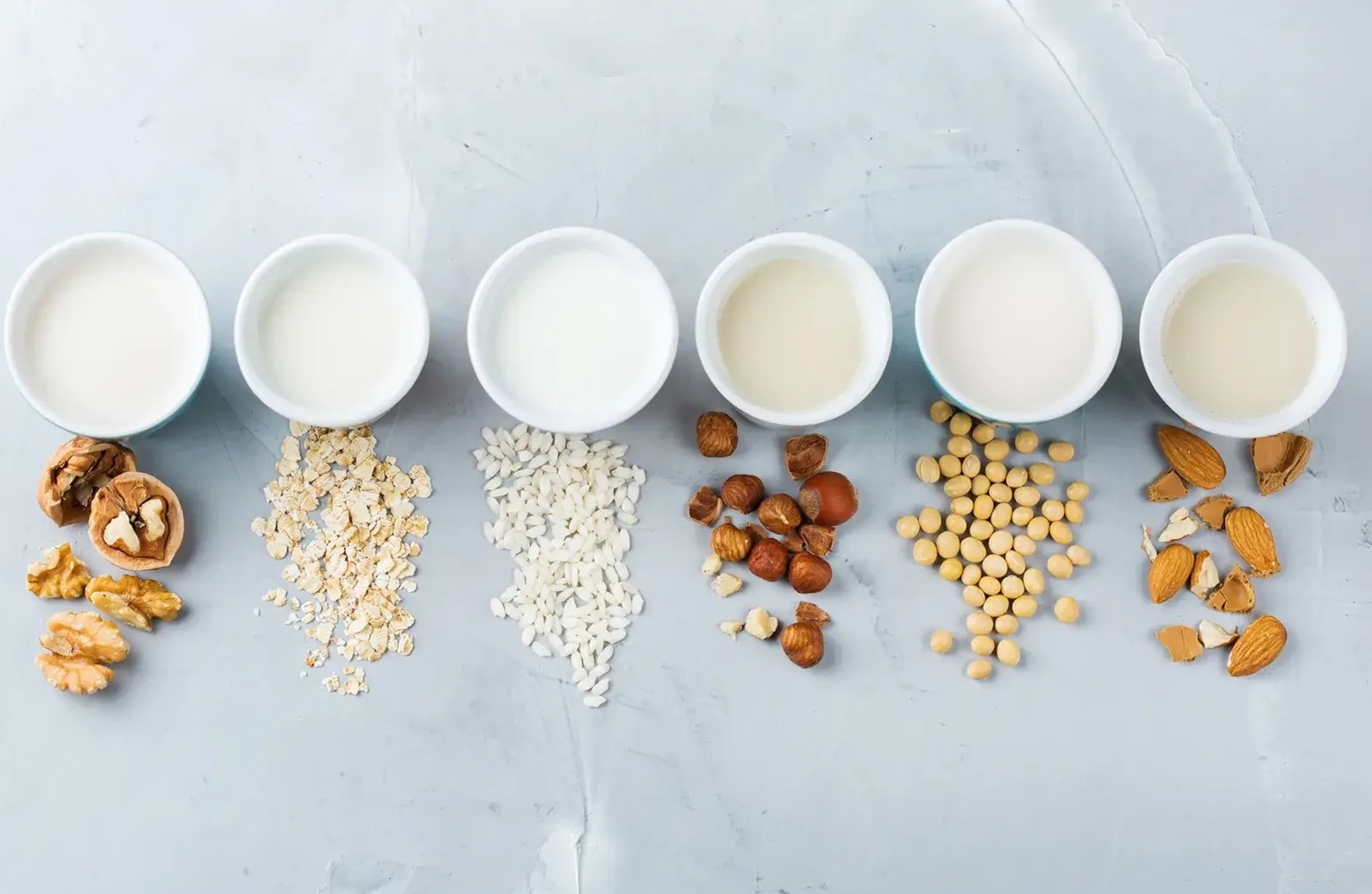Pea, Oat, Soy, Dairy, Oh My: Which Milk Should You Buy?
With so many milk options on the market, choosing the right one comes down to your nutrition goals, taste preferences, and how your body feels after each sip.

Every day, it feels like a new milk hits the market. What started as dairy and 2% has evolved into soy, oat, almond, hemp, pea, and—wait for it—microbe milk. (Yes, it's real. No, I don’t fully understand it either.)
But is any one of them actually better?
And are they worth the up-charge at your coffee shop?
As a nutritionist, let me explain to you exactly what you need to know about each type so you know which one to pour. 🥛
Cow’s Milk: The Original
Cow’s milk is the gold standard for protein, with about 8 grams per cup. It’s also brimming with calcium, potassium, and B vitamins.
- Science Says: A meta-analysis with 618 people found that dairy milk improved bone mineral density in healthy postmenopausal women.
But cow’s milk isn’t for everyone. Around 65% of people worldwide are lactose intolerant, and others avoid it because it’s higher in sugar (12 grams per cup), saturated fat, hormones, or antibiotic residues.
That said, much of the negative press is overblown. The American Heart Association shows that moderate consumption of dairy fits within a heart-healthy diet.
Soy Milk: The Closest Plant Rival (& The One I Choose)
If you’re going plant-based, soy milk is your best bet for protein (it has 7 grams per cup). It also contains isoflavones, plant compounds that mimic estrogen and may help with bone and heart health after menopause. This is my go-to because of the high protein, beneficial compounds and also because I am allergic to nuts to many of the others are off-limits for me.
- Bonus: Most soy milks are fortified with calcium and vitamin D.
The cons. Soy is one of the “Big 8” most common food allergens, and it can be processed with additives, thickeners, and sugars. It could also interfere with thyroid production, particularly in people with an iodine deficiency.
Almond Milk: Low Calorie, Low Protein
While almond milk has barely any protein (1 gram per cup), it compensates by being incredibly low-calorie, with just 30-60 per cup unsweetened.
It’s also a solid keto option with 1-2 grams of carbs and even contains a bit of monounsaturated fats (“good” fats that reduce “bad” cholesterol).
Think of almond milk as more of a low-calorie option than a nutritional powerhouse. We also can’t forget that almond farming is notoriously water-intensive.
Oat Milk: Creamy but Sugary
The natural starch in oats gives it a frothy, creamy texture without needing extra additives, and it contains beta-glucan (a soluble fiber that may lower cholesterol levels).
The downsides? It’s low in protein (2-3 grams per cup) but high in carbs (15-20 grams per cup) and calories (120 per cup).
- Zoom In: When processed, oat milk contains maltose, a natural sugar that has a higher glycemic index. However, it’s far from the “super sugar” that the internet would have you believe.
Pea Protein Milk: The New Contender
The “p” in “pea milk” might as well stand for “protein.” Each glass has up to 8 grams of protein, and it contains all nine essential amino acids (which is rare for plant-based options). 🫛
It’s also low in sugar at just 1-2 grams per cup (unsweetened). However, since pea milk is newer to the market, it’s pricier and harder to find. Also, the “earthy” taste isn’t for everyone.
Hemp Milk: A Quiet Player
Hemp milk comes from hemp seeds. (Yes, the cannabis plant. No, you won’t get high.) What it does offer is omega-3 ALA and iron, which may support heart health and energy levels.
- Nutrition Label: Hemp milk has about 60 calories per cup, 3 grams of protein, and no sugar.
However, hemp milk is low in calcium, vitamin D, and B12, so it may require fortification. Without it, it’s nutritionally incomplete.
So, Which Is Healthiest?
There’s no one “healthiest” milk. Go for the milk that fits your goals, digestion, and palette!
- If bone health is a priority, low-fat cow’s milk, soy milk, and pea milk are your best bets. They deliver the most protein, which your bones need alongside calcium.
- If low calories are your focus, almond works (unless you have a nut allergy like me).
- If taste is your thing, there’s nothing wrong with oat milk in moderation. Just make sure to watch for added sugars and get your protein elsewhere.


